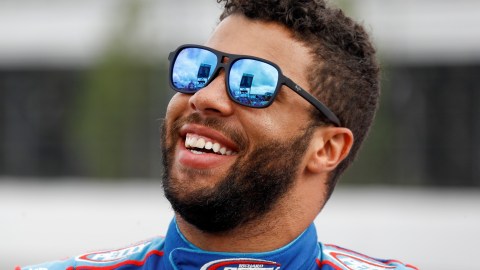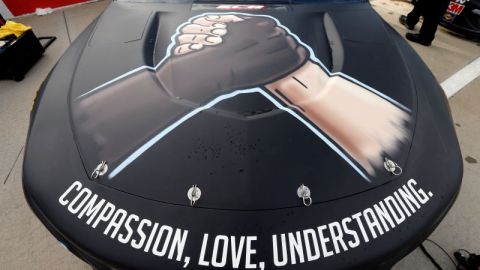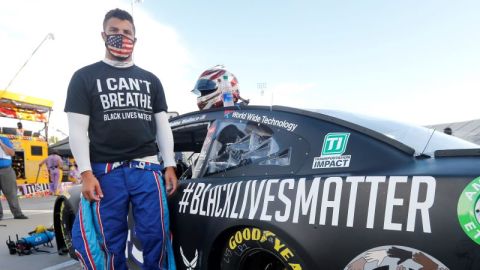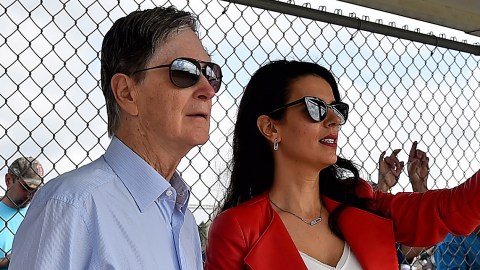If the world were an ideal place, every NBA owner would read the remembrances of late Raiders owner Al Davis, and they’d read closely. It could mean the end of the NBA lockout.
The lesson of Davis’ success isn’t in his three Super Bowls or the renegade status that helped his detractors turn him into a caricature for casual fans. If they can make a punchline of Davis’ accomplishments, his ideas are less of a threat.
Davis, more than any executive in pro sports, realized that it wasn’t the players who stood in the way of him making oodles of money. It was the league and his fellow owners. The NFL’s organizational socialism allowed the league to tell franchises where they could play, how much they could pay their players and even which clothing brands they could wear. Though not explicit, that system also told the teams not to hire women or racial minorites to leadership positions.
That system worked, in a way. Pro football made money, the teams made money, and the players made money. But in comparison to the money all three could have been making, that system stifled growth.
When Davis took control of the AFL’s Raiders in 1963, he was at the forefront of the movement in pro football away from Vince Lombardi‘s vaunted power sweep and into the era of the vertical passing offense. When he left the sideline for the front office in 1966, he overlooked the old, established coaches for young, innovative minds like John Madden (and later Jon Gruden, Hue Jackson and numerous others). Those coaches’ new ideas not only helped make the Raiders successful, but opened up the game in a way that attracted fans and set the league on the path to becoming the most lucrative sports league in North America.
More people wanted to watch, which meant the league could charge more for tickets and television packages. What was good for the Raiders turned out to be good for the other teams, too.
Throughout his time as a general manager, owner and AFL commissioner, Davis recognized that competition was an inherent part of the business, not just the product on the field. He stood up for the underdog USFL, which had the temerity to challenge the NFL’s monopoly over pro football in the U.S. Contrary to the Cliff’s Notes version of both affairs, Davis did not actively try to make the USFL or AFL part of the NFL. Davis advocated business models that allowed more freedom for teams than the NFL allowed. In the case of the AFL, the NFL sought a merger because it was intimidated by Davis’ aggressive signing of NFL players and drafting of college stars. Without a leader like Davis, the USFL was simply crushed.
It is Davis who is responsible for the millions of dollars every league now makes off the sale of apparel. Instead of cringing when the gangster rap group NWA donned Raiders paraphenalia in their music vidoes, Davis embraced NWA’s image, which was one in the same with the Raiders’: angry, outcast and more than borderline illegal.
Raiders Starter jackets became must-have items, silver and black jerseys became popular from Compton to Dorchester, and even when the Raiders stopped being any good, their merchandise was still in vogue. The NFL wanted to determine which companies could manufacture that merchandise; Davis, realizing the league’s deal would mean less if the lucrative Raiders brand wasn’t included, said no thanks. He had made the Raiders a bona fide cultural phenomenon, and he wanted to reap the benefits for himself.
Despite all this, Davis was liberal with his money, often foolishly so. He doled out cash for star players (and some players who weren’t stars). The players, even when they became millionaires, were not the ones keeping him from making more money. They were employees whose jobs were to win games. It was the other owners who were his antagonists, who served lip service to cost management while preventing him from promoting his team as he saw fit and generating new sources of income.
It would be nice, when the NBA owners and players return to the bargaining table, if the owners take the lessons of the Davis model and admit that guaranteed contracts, the players’ share of league revenue and the lack of a hard salary cap are not what caused between 17 to 22 NBA franchises to (allegedly) lose money in 2010. The league’s problem is that its leadership lacks the shrewd imagination of someone like Davis to meld such a unique business as a sports league into a new and unique business model.
The greatest lesson the NBA can take from Davis, though, is that the point of owning a sports franchise is not to make money. The point is to win. Malcolm Gladwell has written that a sports franchise is like a famous painting; you own it because it’s a status symbol and you like to look at it, not because you expect to cash in on the investment at some later date. If you only own it to sell it, you’re doing a disservice to fans/art lovers.
In this way, the model eventually passed Davis by. One of the league’s iconic brands had fallen to second-to-last in the league in overall worth at the time of his death Saturday. Even in this, there is a noticeable difference between how Davis viewed this problem and how the NBA owners view it.
Whereas the owners of the Charlotte Bobcats or the Minnesota Timberwolves claim their financial troubles are the result of overpaid players, Davis knew that his team’s status was due to constant losing. Win, and the Raiders would be popular and lucrative again. If you don’t believe this concept can succeed in the NBA, ask the Portland Trail Blazers and the Oklahoma City Thunder, who despite playing in relatively small media markets made the playoffs and had operating incomes of $10.7 million and $22.6 million, respectively, in 2010-11 according to Forbes.
Here’s what infuriated Davis: Not the fall in income, but the losing. His focus was on the standings, not on the bottom line, and certainly not on trying to bleed an extra 2 percent of league revenue from the guys in uniform.



